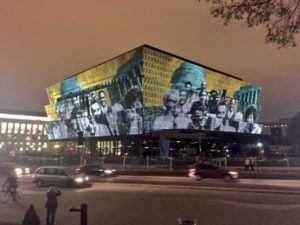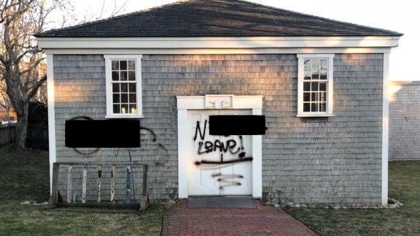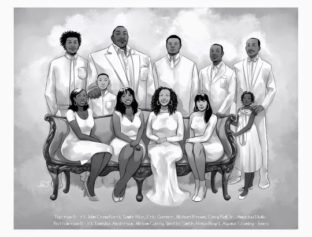
The Smithsonian National Museum of African American History and Culture is set to open Sept. 24, 2016, in Washington. SIA.
Fundraisers for the Smithsonian National Museum of African American History and Culture reached out to wealthy Black individuals and organizations, and the outpouring of generosity has been historical, The Washington Post reports.
The museum is just $25 million shy of its starting goal thanks to an impressive list of private donors, including former Secretary of State Colin Powell, Oprah Winfrey and Samuel L. Jackson, who have contributed a total of $245 million. Famed television producer and writer Shonda Rhimes pledged $10 million.
The development team was innovative in its quest to fund the $540 million building, the paper notes, searching far and wide to identify the country’s wealthiest Black families — some of which were largely unknown to typical donor lists.
Seventy-four percent of $1 million or more donations came from African-American figures. Black sororities, fraternities and organizations contributed 28 percent of the museum’s institutional support. And the benevolence didn’t end there.
Museum officials said the Alfred Street Baptist Church in Alexandria, Virginia, donated $1 million, the largest-ever donation by a faith-based institution. The historic landmark sits in the city’s oldest Black neighborhood.
“This is a staggering amount of generosity,” said Emmett Carson, Silicon Valley Community Foundation president and CEO. “It’s a symbol that Black . . . philanthropy is not an oxymoron.” The California-based non-profit assists corporate, family and individual philanthropists in managing charitable funds.
Carson said the museum cleverly “took advantage of having the first African-American president, and of President Obama’s legacy.”
He told the Post, “It is almost unbelievable that in 200 years we have gone from being chattel to having someone occupy the Oval Office.”
The numbers should not surprise anyone, as research shows African-Americans give a higher percentage of their income to charity than any other group.
Rockefeller Philanthropy Advisors and the W.K. Kellogg Foundation partnered for a 2012 study that found Black donors give 25 percent more of their income than white donors each year.
Roughly two-thirds of African-American households make donations, which adds up to nearly $11 billion a year. Black people are just uncomfortable with the word “philanthropist,” Judy Belk, then-senior vice president for the Advisors, told Reuters of the study.
“If you don’t see role models who look like you when people start talking about issues related to philanthropy, you start believing, ‘Hey, maybe I’m not a philanthropist,’ ” she said in 2012.
African-Americans have established more identity-based charitable funds (think the United Negro College Fund) over the last four decades than any other racial and/or ethnic group, according to the Kellogg report. There are six times the number of Black funds today as there were in 1970.
Tracey Webb, founder of BlackGivesBack.com, said she created the blog to challenge the stereotype of African-Americans as non-givers.
“I think that our stories of giving really haven’t been told,” she said in an interview with NPR‘s Michel Martin. “My main purpose is to highlight the big, bold givers and also our grassroots givers — everyday givers in our communities.”
Webb said Black people are more often seen as the recipients of charity rather than givers and she hoped to change that narrative, but it was a challenge to find people who were willing to share their stories.
“It’s biblical … you’re supposed to be humble about your giving, and you’re not supposed to share about it,” she said. “But I want to change that because I really believe that when you share your stories of giving, it can inspire others.”
Webb ended the blog in December 2015 to focus on her own charitable organization, The Black Benefactors. The “giving circle” encourages philanthropy and community service in the Black community and businesses in the Washington, D.C., metropolitan area.


